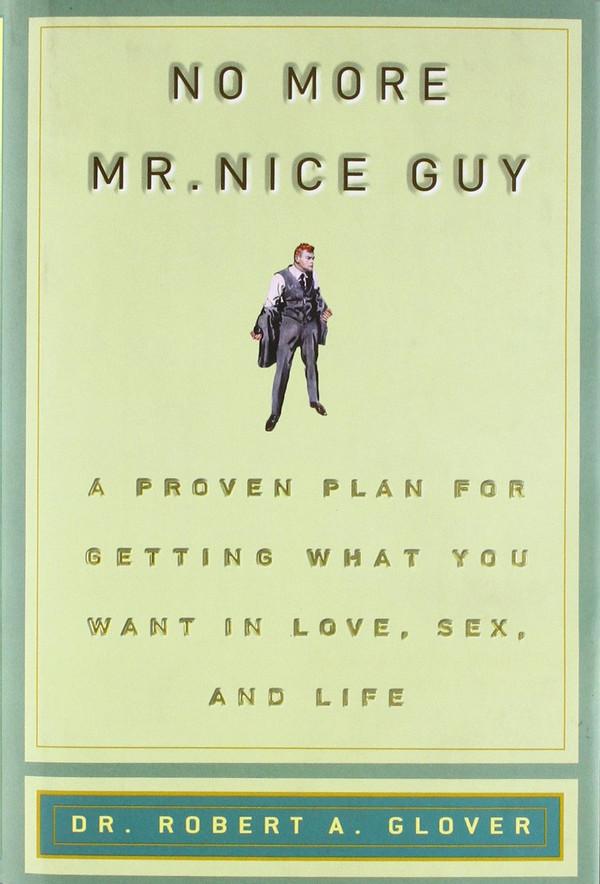Explore the World's Best Ideas
Join today and uncover 100+ curated journeys from 50+ topics. Unlock access to our mobile app with extensive features.
Self Care
Taking Good Care of the Self Helps Nice Guys Learn To Approve Of Themselves.
Examples:
• Exercise, work out, go for a walk.
• Eat healthy food.
• Get enough sleep.
• Relax, play, goof off.
• Get a massage.
• Go out with buddies.
• Buy a new pair of shoes.
• Get shoes polished.
• Get dental work done.
• Get a physical.
• Listen to music.
17
122 reads
Affirming Self
Helps Nice Guys Learn To Approve Of Themselves.
Positive affirmations can help change the Nice Guy's core belief about himself. Affirmations replace old, inaccurate messages about the Nice Guy's worth with new, more realistic ones.
14
122 reads
Spending Time Alone
When alone, Nice Guys can discover who they are and what they like about themselves, do what they want without having to please or compromise and face their number one fear —loneliness and isolation.
Plan a weekend trip to the mountains or beach. If possible, plan a vacation or retreat for a week or longer by yourself to a place where no one knows you. Visit a foreign country by yourself if at all possible.
15
87 reads
Revealing Self
When Nice Guys try to hide their humanity from others, they reinforce their core belief that they are bad and unlovable. Changing this core belief requires that they bring their humanity out into the open, release their toxic shame, and receive more accurate messages than the ones internalized in childhood.
By necessity, this process requires a safe person or group.
This process begins by just talking about himself.
15
93 reads
Shedding Old Skin
As recovering Nice Guys release their toxic shame and start seeking their own approval, they begin to realize several important truths.
• They are not bad.
• They don't have to do anything to win other people's approval.
• They don't have to hide their perceived flaws or mistakes.
• People can love them just as they are.
15
85 reads
Caretaking Prevents Nice Guys From Getting Their Needs Met
Caretaking is an immature and indirect attempt to try to get one's needs met.
Caretaking always consists of two parts:
1) Focusing on another's problems, needs, or feelings in order to
2) Feel valuable, get one's own needs met, or to avoid dealing with one's own problems or feelings.
Example: The story of gay graphic designer Reese.
13
89 reads
Caring Vs. Caretaking
Caretaking
1) Gives to others what the giver needs to give.
2) Comes from a place of emptiness within the giver.
3) Always has unconscious strings attached.
Caring
1) Gives to others what the receiver needs.
2) Comes from a place of abundance within the giver.
3) Has no strings attached.
13
85 reads
The Victim Triangle
1) The Nice Guy gives to others hoping to get something in return.
2) When it doesn't seem that he is getting as much as he gives or he isn't getting what he expected, he feels frustrated and resentful.
3) When this frustration and resentment builds up long enough, it spills out in the form of rage attacks, passive-aggressive behavior, pouting, tantrums, withdrawing, shaming, criticizing, blaming, even physical abuse.
Once the cycle has been completed, it usually just begins all over again.
16
71 reads
Becoming Truly Selfish
Since Nice Guys learned to sacrifice themselves in order to survive, recovery must center on learning to put themselves first and making their needs a priority.
This paradigm shift is always terrifying for recovering Nice Guys. The idea of making their needs a priority feels like the quickest route to being disliked, unloved, and all alone.
14
72 reads
Benefits of Nice guys putting themselves first
They increase the likelihood of getting what they need and want
They can give judiciously — giving what people really need.
• They can give without resentment and expectation.
• They become less needy.
• They become more attractive.
13
73 reads
Taking Responsibility For Their Own Needs Helps Nice Guys Get Their Needs Met
Having needs is part of being human.
• Mature people make meeting their own needs a priority.
• They can ask for help in meeting their needs in clear and direct ways.
• Other people really do want to help them meet their needs.
• This world is a place of abundance.
13
68 reads
IDEAS CURATED BY
Curious about different takes? Check out our No More Mr. Nice Guy! Summary book page to explore multiple unique summaries written by Deepstash users.
Clemente V.'s ideas are part of this journey:
Learn more about books with this collection
Leonardo da Vinci's creative process
How to approach problem-solving like da Vinci
The importance of curiosity and observation
Related collections
Different Perspectives Curated by Others from No More Mr. Nice Guy!
Curious about different takes? Check out our book page to explore multiple unique summaries written by Deepstash curators:
1 idea
Arghadip Chakraborty's Key Ideas from No More Mr. Nice Guy!
Robert A. Glover
7 ideas
Adarsh Pratap Singh 's Key Ideas from No More Mr. Nice Guy!
Robert A. Glover
24 ideas
Self-Help Maven's Key Ideas from No More Mr Nice Guy
Robert A. Glover
Discover Key Ideas from Books on Similar Topics
8 ideas
The Seven Love Styles
truity.com
3 ideas
The Ideal Framework for a Happy Existence
blog.usejournal.com
3 ideas
The Ripple Effects of a Thank You
greatergood.berkeley.edu
Read & Learn
20x Faster
without
deepstash
with
deepstash
with
deepstash
Personalized microlearning
—
100+ Learning Journeys
—
Access to 200,000+ ideas
—
Access to the mobile app
—
Unlimited idea saving
—
—
Unlimited history
—
—
Unlimited listening to ideas
—
—
Downloading & offline access
—
—
Supercharge your mind with one idea per day
Enter your email and spend 1 minute every day to learn something new.
I agree to receive email updates
